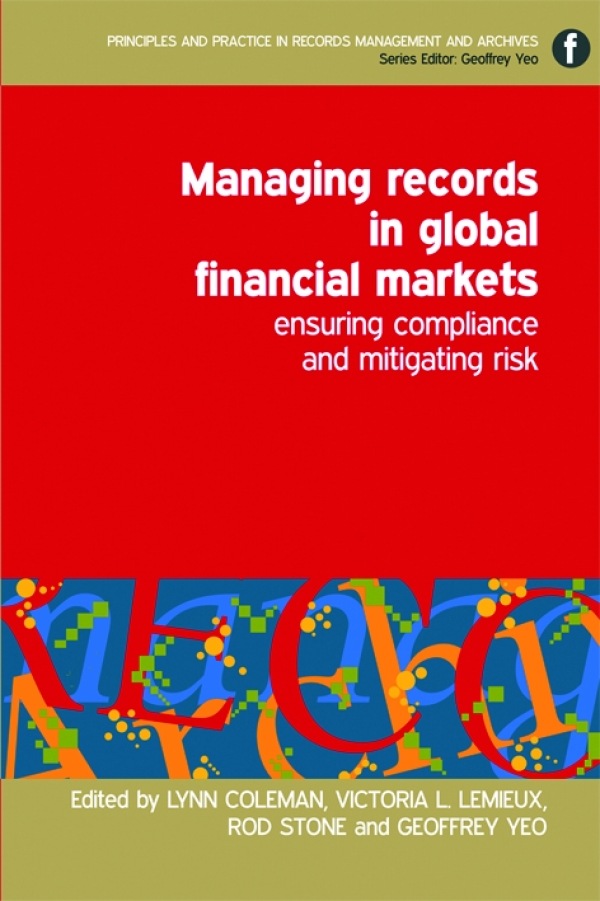Introduction
Published online by Cambridge University Press: 08 June 2018
Summary
There are few books that address the management of records in the business world and fewer still that discuss records management in the context of global financial markets.
Companies operating in these markets are subject to particular pressures that arise from the need to address the requirements of different financial regulatory bodies across the world; more generally, companies with a global reach need to be aware of, and comply with, the laws of each different jurisdiction in which they operate. Although many of the record-keeping issues that large companies face are similar to those encountered by small and medium-sized businesses and by public sector organizations, these particular pressures are unique to, or especially significant in, the financial sector. The global financial sector encompasses a variety of different types of companies ranging from investment banks and fund managers to hedge funds. The structure of financial markets and the types of companies that operate within them are discussed more fully in Chapter 1 ‘Global financial markets’. For clarity, all of these companies are normally referred to in this book as ‘financial institutions’.
The book focuses on regulatory, legal and governance issues associated with managing records in financial institutions and on records-related risks that financial institutions may face. The purpose of the book is to explore these issues and to offer recommendations for meeting the challenges to which they give rise. The book aims to cover the major record-keeping issues that global financial institutions need to address, and its contributing authors have been selected for their expertise in one or more of these areas. Underpinning the book is a conviction that, if a financial institution is aware of the need for good recordkeeping and takes action to build a sound records management programme, it will be more readily equipped to provide evidence of its decisions and actions, demonstrate compliance and respond to investigations and litigation. If it does not do so, sooner or later a crisis will arise and the institution will face the costs, risks and disruption of having to create large crisis management teams at short notice.
- Type
- Chapter
- Information
- Managing Records in Global Financial MarketsEnsuring Compliance and Mitigating Risk, pp. xvii - xxxPublisher: FacetPrint publication year: 2011



